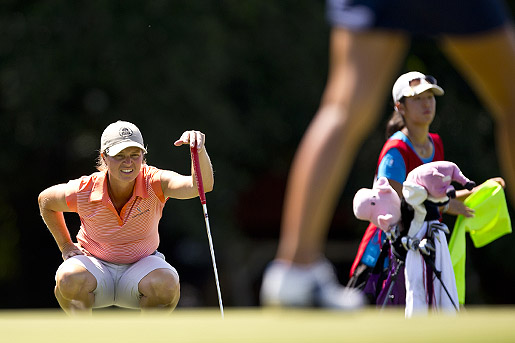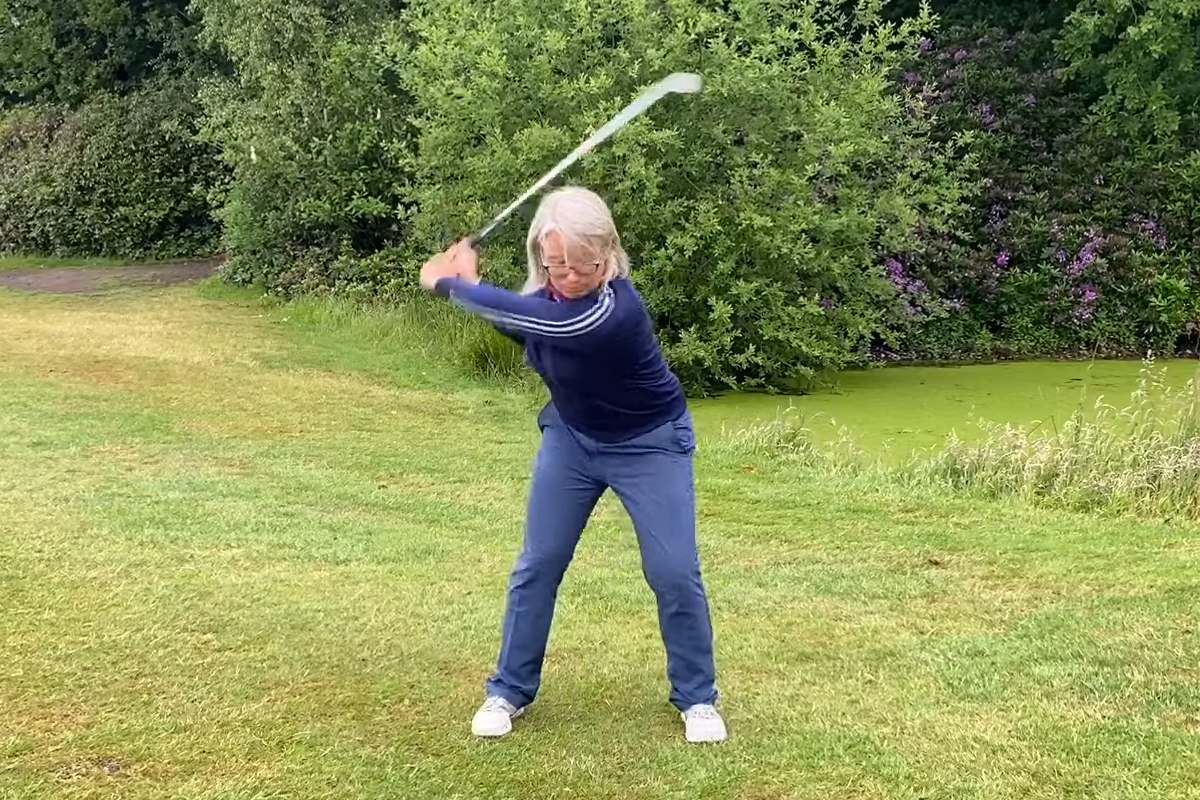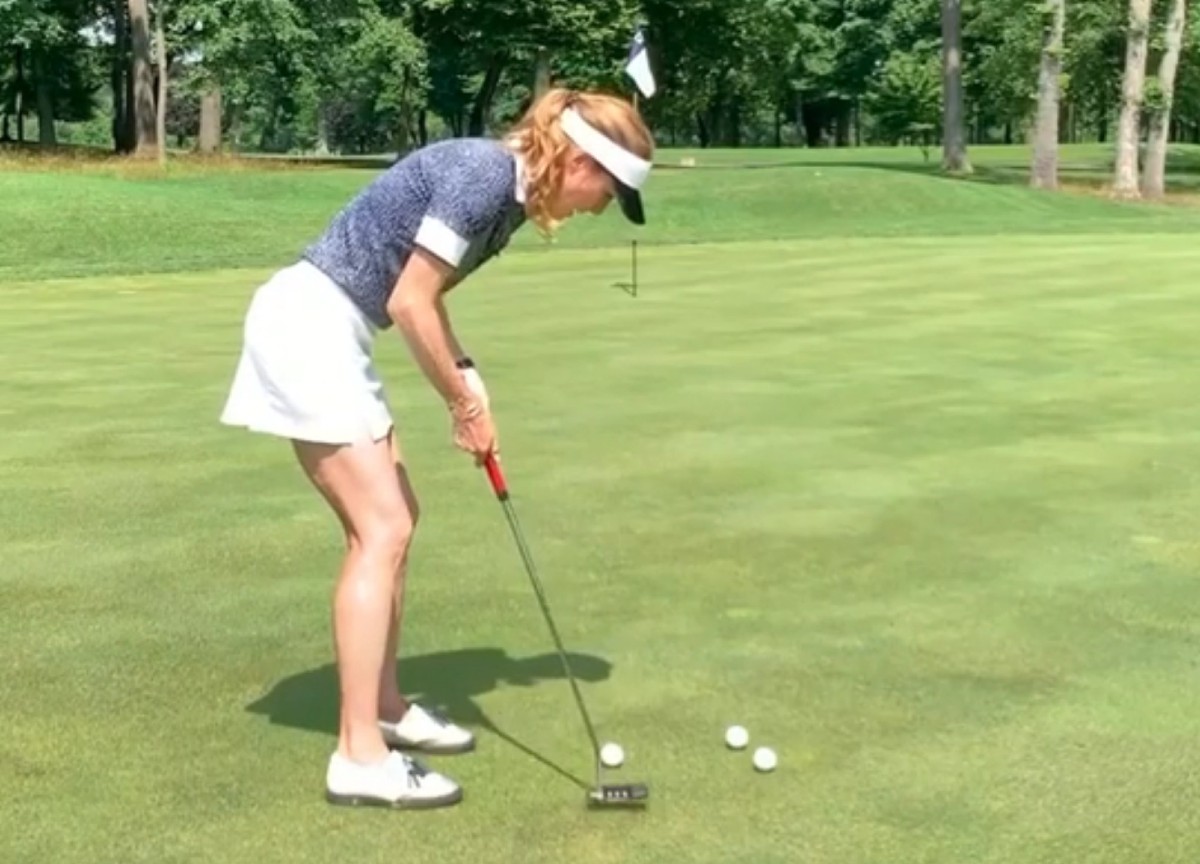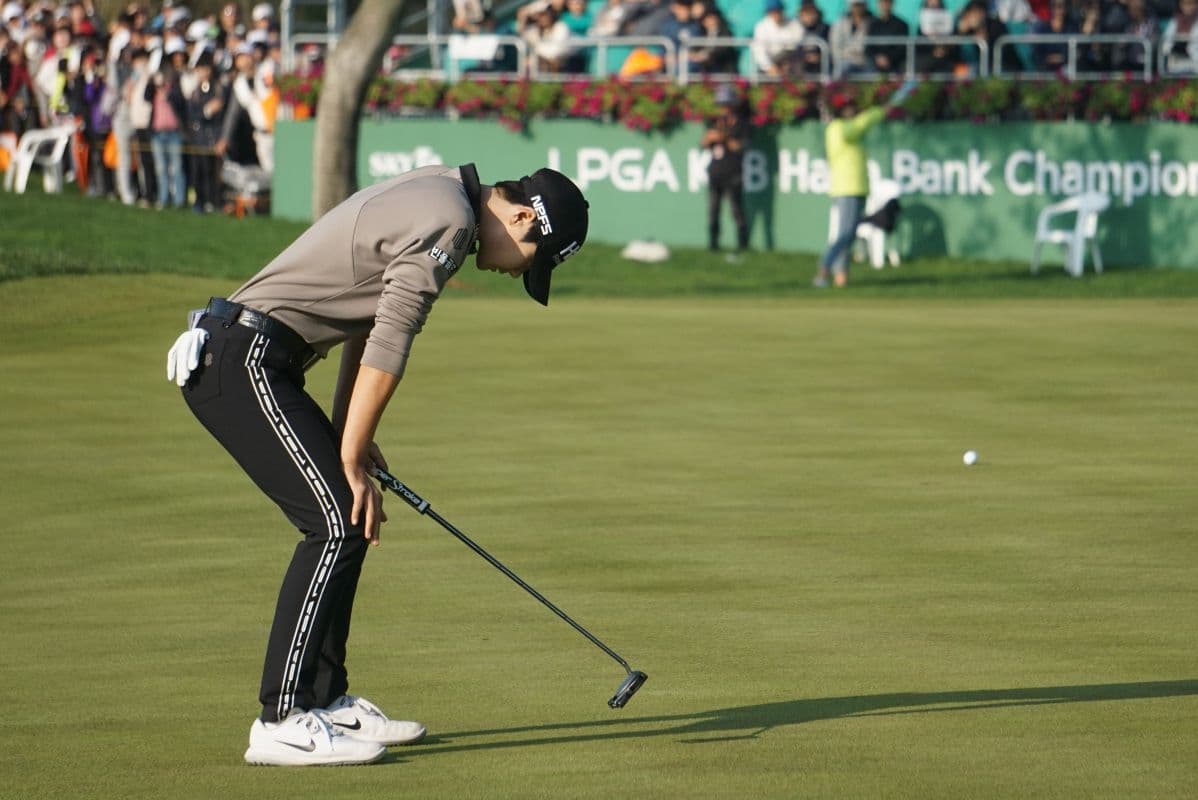by Dawn Woodard
With all the advances in golf technology, golf instruction, golf fitness, and sports psychology, why do golfers have such a difficult time improving? Some players attribute it to starting golf later in life, and some complain that they don’t have enough time to practice as much as they think they need to. Others practice all the time, but can’t seem to lower their scores. Some blame a swing flaw, and others say they fight nerves. Whether I’m working with a highly competitive tournament player or an average player who plays the game just for fun, they all wish to improve to some degree.
 Competitive players know they have to keep improving in order to get to the next level and achieve their goals. Average players want to improve simply because it makes the game more enjoyable and less frustrating for them. Both types of players are more successful and improve more quickly when they understand themselves and through that golf self-awareness, understand why they make the decisions they do.
Competitive players know they have to keep improving in order to get to the next level and achieve their goals. Average players want to improve simply because it makes the game more enjoyable and less frustrating for them. Both types of players are more successful and improve more quickly when they understand themselves and through that golf self-awareness, understand why they make the decisions they do.
The path to becoming a better golfer involves talent, lots of practice, having equipment that is right for you, mental preparation, becoming stronger and more fit, and many other variables. But, until golfers have self-awareness and understand themselves and how their unique perspectives and tendencies will affect every decision they make on and off the golf course, that path will be bumpy and they will be limited in reaching their full potential. If golfers understand how they make their decisions, why they make those decisions, what their natural tendencies are going to be under pressure, why certain things like slow play or a shortened warm-up time may bother them, and how their own perspective affects everything from the goals they set for themselves to how they react emotionally to a shot, then they will be better able to manage themselves.
Working with players and coaches at all levels has allowed me to see firsthand that when players understand why things are happening on or off the golf course they are much better prepared to deal with things and to grow and develop at a much faster rate. Trial and error is eliminated and the learning curve is shortened.

Dr. Morris Pickens, Sports Psychologist at Sea Island Perfomance Center, says that the Judgment Index assessment allows him to significantly shorten the learning curve when trying to understand his clients’ perspectives and develop a plan for them. College coaches from various schools have conveyed that the assessment has allowed them to gain insight into their players’ decisions and has made a difference in how they communicate with them. Individual players credit the assessment with helping them to understand why they do things a certain way, and has helped them be proactive in managing some of those tendencies while still on the golf course.
Weekend players who play for fun have indicated they have learned that even when their game isn’t what is could be that understanding that their perspective affects everything from shot options to reactions to outcomes has allowed them to slow down and account for things that they may normally have missed and make better decisions. Those better decisions help prevent one mistake from leading to another, spiraling out of control and in ending in frustration. All players have strengths and weaknesses, but understanding why and learning how to manage those strengths and account for the weaknesses is key. There isn’t just one correct recipe or one master code for unlocking potential and becoming a better golfer. Each individual must have a recipe or code that is unique to only them. Sports psychologists may have different philosophies, but they all agree that in order to improve, a player has to get comfortable being uncomfortable. At Judgment Matters, I use an assessment that identifies what tendencies a player will have and why it’s there so that the player can begin to identify where their comfort area is and how to expand it.






